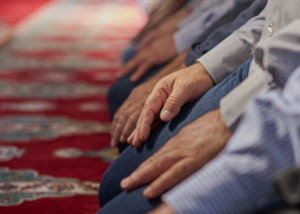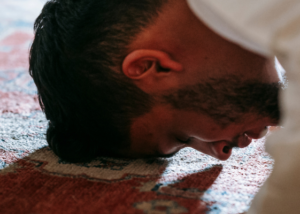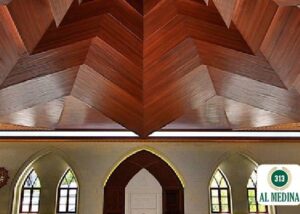Quran
Hadith
Islamic Text
بِسْمِ اللَّهِ الرَّحْمَنِ الرَّحِيمِ
In the Name of Allah Most Merciful Most Kind
Short Answer
Yes, it is Makruh to pray Nafl in Jamah according to the Hanafi Madhab. This ruling extends to Sunnah too. However, there are some exceptions like Taraweeh prayer, which is not Makruh. Another exception is a small Jamah (congregation). If the Jamah is very small, it is not Makruh.
Explanation
فَإِنَّ خَيْرَ الْحَدِيثِ كِتَابُ اللهِ، وَخَيْرُ الْهُدَى هُدَى مُحَمَّدٍ، وَشَرُّ الْأُمُورِ مُحْدَثَاتُهَا، وَكُلُّ بِدْعَةٍ ضَلَالَةٌ
The Messenger of Allah ﷺ said, ‘The best of speech is the Book of Allah (Most High). And the best of guidance is the guidance of Muhammad ﷺ. The most evil of affairs are innovations. And every innovation (Bidah) is misguidance’. (Muslim, 867 – 43).
Is it Bidah?
The Hadith above is relevant to our discussion on praying Nafl in Jamah because leading Hanafi scholars considered it a Bidah (innovation). This ruling is not restricted to Nafl (supererogatory) prayers alone. Rather, it is a general rule. As such, Hanafi scholars do not permit Jamah (congregational) prayer unless there is evidence to substantiate it. Consequently, in the absence of such evidence, they consider it Makruh.
وَأَوْرَدَ كَيْفَ جَازَ النَّفَلُ بِجَمَاعَةٍ وَهُوَ بِدْعَةٌ. أُجِيبُ بِأَنَّ أَدَاءَهُ بِلَا أَذَانٍ وَلَا إقَامَةٍ بِوَاحِدٍ أَوْ اثْنَيْنِ يَجُوزُ. (فتح القدير)
It is argued, how it was permissible to perform voluntary prayers in a group, when it is an innovation (Bidah)? I answer: It is permissible to perform it without the Adhan or Iqamah, with one or two people. (Imam Ibn al-Humam, Fath al-Qadeer Sharh al-Hidayah).
وصلاة النفل بالجماعة مكروهة ما خلا قيام رمضان وصلاة الكسوف لأنه لم يفعلها الصحابة، ولو فعلوا لاشتهرت، كذا ذكره الولوالجي. (البناية شرح الهداية)
The Nafl prayer in congregation (Jamah) is disliked (Makruh). With the exceptions of the Ramadan prayer and the eclipse prayer. Since the Companions (Sahabah) did not do it (i.e. pray Nafl in Jamah). If they had done so, it would have been well-known. This was mentioned by al-Walwaaliji. (Imam Badr al-Deen al-Ayni, al-Binayah Sharh al-Hidayah).
In the Nusoos (texts) above, it is clear that leading Hanafi Imams considered Nafl in Jamah to be Bidah. Imam al-Ayni explicitly mentioned that the Sahabah did not do it. Thus indicating that such an action is an innovation. However, exceptions to this general rule have been mentioned.
Taraweeh is an exception
Since we have clear evidence that Taraweeh was performed in Jamah it is an exception to the general rule. Therefore, it is not Makruh to pray it in Jamah. On the contrary, it is recommended to pray Taraweeh in Jamah:
إنَّمَا كَانَ كَذَلِكَ لِكَرَاهَةِ الْإِمَامَةِ فِي النَّفْلِ فِي غَيْرِ التَّرَاوِيحِ. (منحة الخالق)
That was only due to the dislike (Makruh) in leading a voluntary (Nafl) prayer. Other than Tarawih. (Imam Ibn Abideen, Minhatu al-Khaliq).
والجماعة في النفل في غير التراويح مكروهة. (مراقي الفلاح شرح متن نور الإيضاح)
Congregational prayers (Jamah) for Nafl other than Tarawih are disliked (Makruh). (Imam al-Shurunbulali, Maraaqi al-Falah).
Another exception
If the group praying Nafl together is small, then it is not Makruh. It becomes Makruh when four people are praying behind the Imam. This is because we find examples of one or two people praying Nafl behind the Prophet ﷺ. Therefore, it is unacceptable to consider it Bidah and Makruh. However, if there are three people behind the Imam, then we have some difference of opinion amongst the Hanafi scholars:
وعن شمس الأئمة: إنّ التطوع بالجماعة إنما يُكْرَه إذا كان على سبيل التَّدَاعي. أما لو اقتدى واحد بواحد، أو اثنان بواحد لا يُكْرَه. وإنْ اقتدى ثلاثة بواحد اخْتُلِفَ فيه. وإنْ اقتدى أربعة بواحد كُرِه اتفاقاً. (فتح باب العناية بشرح النقاية)
Shams al-Aimah said: Voluntary prayer in congregation (Jamah) is only disliked (Makruh) if it is being called to. But if one follows one (Imam), or two follow one then it is not disliked. If three follow one, then it is differed over. However, if four follow one, it will be disliked by agreement. (Imam Ali al-Qari, Fath Bab al-Inayah).
وَعَنْ شَمْسِ الْأَئِمَّةِ الْكَرْدَرِيِّ أَنَّ التَّطَوُّعَ بِالْجَمَاعَةِ إنَّمَا يُكْرَهُ إذَا كَانَ عَلَى سَبِيلِ التَّدَاعِي أَمَّا لَوْ اقْتَدَى وَاحِدٌ بِوَاحِدٍ وَاثْنَانِ بِوَاحِدٍ لَا يُكْرَهُ وَإِذَا اقْتَدَى ثَلَاثَةٌ بِوَاحِدٍ اُخْتُلِفَ فِيهِ، وَإِنْ اقْتَدَى أَرْبَعَةٌ بِوَاحِدٍ كُرِهَ اتِّفَاقًا، كَذَا فِي الْكَافِي. (درر الحكام شرح غرر الأحكام)
Shams al-Aimah al-Kardari said: Voluntary prayer in congregation (Jamah) is only disliked (Makruh) if it is being called to. But if one follows one (Imam), or two follow one then it is not disliked. If three follow one, then it is differed over. However, if four follow one, it will be disliked by agreement. This was mentioned in al-Kafi. Imam Muli al-Khusru, Durar al-Hukam).
وَقَالَ شَمْسُ الْأَئِمَّةِ الْحَلْوَانِيُّ إنْ كَانَ سِوَى الْإِمَامِ ثَلَاثَةٌ لَا يُكْرَهُ بِالِاتِّفَاقِ، وَفِي الْأَرْبَعِ اخْتَلَفَ الْمَشَايِخُ وَالْأَصَحُّ أَنَّهُ يُكْرَهُ اهـ. (البحر الرائق شرح كنز الدقائق)
Shams al-Aimah al-Halwani said: If there are more than three, other than the Imam, it is not disliked by agreement. In the case of four, the Scholars disagreed. The soundest view is that it is disliked. (Imam Zayn al-Deen Ibn Nujaym, al-Bahr al-Raiq).
(قَوْلُهُ عَلَى سَبِيلِ التَّدَاعِي) هُوَ أَنْ يَدْعُوَ بَعْضُهُمْ بَعْضًا كَمَا فِي الْمُغْرِبِ، وَفَسَّرَهُ الْوَانِيُّ بِالْكَثْرَةِ وَهُوَ لَازِمُ مَعْنَاهُ. (رد المحتار على الدر المختار)
His saying: If it is being called to. Meaning if some of them call others, as is mentioned in al-Mughrib. And al-Wani explained it as abundance. That is necessitated by the meaning. (Imam Ibn Abideen, Radd al-Muhtar).
Is it Makruh Tahreemi?
Generally, the Hanafi scholars have not specified whether Nafl in Jamah is Makruh Tahreemi or Tanzeehi. They simply say it is Makruh. However, the fact that they have referred to it as Bidah, makes it clear that it is Tahreemi. This is because Bidah is sinful. In the Nass below, Imam Burhan al-Deen clearly refers to it being prohibited. As a result, this would dictate the ruling: Makruh Tahreemi.
ولا يصلي تطوع بجماعة إلا قيام رمضان فقد استثني عن النهي قيام رمضان، وكما أن قيام رمضان مستثنى عن النهي فصلاة الكسوف يجوز أداؤها بالجماعة مع أنها تطوع ذكر محمد في الأصل. (المحيط البرهاني في الفقه النعماني)
No voluntary prayers may be performed in congregation (Jamah) except the Ramadan prayer. As the Ramadan prayer is excluded from the prohibition. Just as the Ramadan prayer is excluded from the prohibition, the eclipse prayer is permitted in congregation even though it is a voluntary prayer. This was mentioned by (Imam) Muhammad in al-Asl. (Imam Abu al-Maali Burhan al-Deen al-Bukhari, al-Muheet al-Burhani).
Conclusion
It is Makruh to pray Nafl prayer in congregation according to the Hanafi Madhab. However, there are exceptions to this rule. Therefore, one should not immediately condemn it. Rather, one should put the onus on those praying Nafl in congregation to provide evidence that it is permitted in their specific circumstance. If they do not do so then they are at fault. This is because Nafl in congregation is Makruh unless a specific exception is mentioned.
And Allah Most High Knows Best.
–Answered by Shaykh Noorud-deen Rashid (04.04.24)






